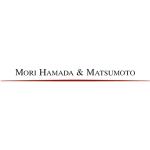SECTION 1: Market outlook
1.1 What is the outlook for US investment into your jurisdiction over the next 12 months, given the new US administration's protectionist focus?
Japan has not seen any particular downturn in US investments into Japan since the beginning of the year and we do not foresee any drastic change at least for the time being.
Recent inbound M&A and other corporate investments from the US have been focused on industries such as services, IT and telecommunications and electronics. While the electronics sector is a key area of export to the US, it seems likely that any protectionist focus by the Trump administration would be placed primarily on the automotive sector, the largest exporting industry to the US.
1.2 Are there any industries in particular that you think are more likely to be affected by the US's new economic stance?
As noted above, the automotive industry seems the most likely to be affected.
SECTION 2: Approving foreign investments
2.1 Explain the foreign investment approval process and approval timetable.
Under the Foreign Exchange and Foreign Trade Act (Fefta), a foreign investor is required to file a prior notification if the relevant foreign investment constitutes an inward direct investment and the Japanese target company is engaged in a business concerned with national security, public order or safety and certain other activities. These activities include: the manufacturing of arms, aircraft, leather and leather goods; manufacturing related to nuclear energy and space development, electricity, gas and heat supply; telecommunications and broadcasting; waterworks and sewage; railway, aviation, marine and other transportation; security services, agriculture, forestry and fisheries; and oil refining and other oil-related businesses.
For purposes of Fefta, a foreign investor would include, among others:
individuals who are non-Japanese residents;
corporations organised under the laws of foreign jurisdictions or whose principal offices are located outside Japan; and
corporations where 50% or more of the voting rights are held, directly or indirectly, by persons described in the above mentioned items; or where a majority of whose officers, or officers having the power of representation, are non-Japanese residents.
In addition, inward direct investments include, among others, the following types of investments by any foreign investor:
acquisition of shares or other interests in a Japanese non-listed company from any person other than foreign investors; and
acquisition of shares in a Japanese listed company, resulting in the holding of 10% or more of the total issued shares of the target company.
If a pre-notification is required for the inward direct investment, it must be submitted to the Minister of Finance and other minister(s) in charge of the relevant industry via the Bank of Japan within six months prior to the date of investment.
The waiting period is generally 30 days, commencing on the day immediately following the day when the pre-notification is received by the relevant ministers. However, it may be shortened (normally to two weeks) or extended (up to five months) by the relevant ministers.
If the relevant Ministers, as a result of their review, find that the inward direct investment is harmful to national security, public order or safety, they may recommend the foreign investor change or suspend the planned inward direct investment after hearing the opinion of the Council on Customs, Tariff, Foreign Exchange and other Transactions. The foreign investor is required to respond to such recommendations within 10 days. If the foreign investor fails to do so, or responds that it will not accept the recommendation, the relevant Ministers may issue an order to change or suspend the planned inward direct investment.
There has been only one case where an order for suspension was issued. The order was issued in 2008 against a UK-based activist fund (The Children's Investment Master Fund), which intended to purchase more than a 10% stake in Electric Power Development Company, an electric power wholesaler owning electric power plants (including a nuclear plant under construction).
2.2 Are there any investment restrictions in specially regulated sectors and is the government entitled to any special rights in these sectors?
Examples of Japanese laws containing specific restrictions on foreign investments include, among others: the Broadcast Act; the Radio Act; the Civil Aeronautics Act; and the Cosigned Freight Forwarding Business Act. If the shareholding by a foreign investor exceeds the applicable threshold, the relevant business licences granted under these acts may be terminated.
In addition, as briefly outlined below, under the abovementioned acts, the shares of a regulated company held by a foreign investor in excess of a specified threshold (the excess shares) can be denied entry into the company's shareholder registry or disenfranchised. The Act on Nippon Telegraph and Telephone Corporation, etc. has a similar mechanism. (See box below).
It should be noted that under the Broadcast Act and the Act on Nippon Telegraph and Telephone Corporation etc, certain indirect shareholdings by foreign investors, in addition to their direct shareholdings, are generally counted in determining whether the applicable threshold is exceeded, which complicates the relevant rules.
If entry into the shareholder registry is refused, the foreign investor who owns the excess shares generally cannot exercise voting rights and other shareholder rights with respect to such excess shares. On the other hand, payment of dividends on the excess shares is generally considered to be permissible, and there are companies that have been doing so.
Under the relevant acts, the regulated companies are required to make a public notice as to the ratio of the voting rights held by foreign investors, subject to certain requirements. In practice, Japan Securities Depository Center (a corporation managing the securities settlement system in Japan) regularly publishes the ratio of the shares directly held by foreign investors as of the last trading date.
2.3 Which authority oversees competition clearance and give a brief overview of the merger clearance process?
The Japan Fair Trade Commission (JFTC) oversees the competition clearance process.
Under the Act on Prohibition of Private Monopolization and Maintenance of Fair Trade, prior notification must be filed with the JFTC in connection with an acquisition of shares resulting in over 20% or 50% of the total voting rights of the target company, if aggregated sales in Japan of the acquirer and the target company (on a consolidated basis) exceeds JPY20 billion ($178 million) and JPY5 billion, respectively. The waiting period is generally 30 days commencing on the day after the JFTC receives the prior notification. However, it may be shortened or extended by the JFTC. If the JFTC finds any competition issue with regard to the acquisition and the parties involved do not resolve that issue within the period designated by the JFTC, the JFTC may issue a cease and desist order.
2.4 Are there further approval requirements that foreign investors should be aware of?
While not limited to foreign investments, investments in financial institutions (such as banks, insurance companies, securities firms) may be subject to prior approval requirements, depending on the voting rights held by the relevant investor. Generally, the applicable threshold is 20% (in certain cases 15%) and 50%.
3.1 What are the most common legal entities used for US investment in your jurisdiction?
The stock company (kabushiki kaisha or KK) is the most common form of business in Japan. In addition, there are an increasing number of cases where the limited liability company (godo kaisha or GK) is alternatively used.
In both forms, limited liability of the equity holders is ensured. Major characteristics of a GK compared to a KK include:
A GK allows flexibility in designing the corporate governance structure.
Only a small amount of the registration tax is imposed upon a GK's incorporation or capital increase (unless it records the contributed assets into the stated capital), while a KK is
generally required to pay 0.35% of the amount of contributed assets as the registration tax.
A GK is treated as a check-the-box entity under US tax law and, therefore, can be transparent for US tax purposes (although it is subject to entity-level taxation in Japan).
A GK is not subject to the requirements of making an annual public notice of its financial statements, while such requirements apply to a KK (except in the case of small companies).
3.2 What are the key requirements for establishment and operation of these legal entities?
A KK can be established by registering its establishment in the commercial registry with the competent local legal affairs bureau. A KK is deemed to be established when the registration application is received by the bureau.
There are certain steps that must have been followed at the time of the registration application, including:
adoption of the articles of incorporation;
contribution of assets by the persons subscribing the shares issued upon formation; and
election of directors and officers.
It should be noted that in certain cases, such as where contributions-in-kind are made, a court-appointed inspector conducts an inspection to confirm the assets so contributed are not over-valued.
For the registration of the establishment of a KK, certain documents must be submitted, including the articles of incorporation certified by a Japanese public notary.
The process for establishing a GK is simpler. In the case of a GK, election of directors and officers are not necessarily required. Also, unlike a KK, the articles of association do not need to be certified by a notary public.
For both forms, there are no minimum requirements regarding the capital amount or number of shareholders. Also, there is no requirement that any of directors or officers be a Japanese resident.
SECTION 4: Dispute resolution
4.1 How effective are local courts' enforcement and dispute resolution proceedings, and what should US investors be particularly aware of?
Japanese legal enforcement and dispute resolution proceedings are generally considered fair and impartial, although there are some points for US investors to note. First, court procedures frequently take a significant amount of time. According to a survey conducted by the Japanese court system in 2016, the average period of time from the initiation of court proceedings to the entry of judgment was approximately 19 months for cases where examination of witness(es) was conducted (except for certain types of cases that can be expeditiously resolved). Second, Japanese legal proceedings are conducted in the Japanese language. Third, while Japan has incorporated certain US and UK law transactional practices (such as inclusion of representations and warranties and material adverse effect clauses in contracts), the lack of Japanese precedents creates some level of uncertainty as to how Japanese courts will interpret and apply these clauses.
It should be noted that in certain cases, Japanese courts have shown a tendency to interpret the text of a contract to be consistent with what the court considers to be 'equitable'; significantly deviating from the text of contract as written. In addition, jury trials have not been adopted for civil cases.
4.2 Does your jurisdiction have a bilateral investment protection treaty with the US and is that commonly used by investors?
Japan does not have a bilateral investment protection treaty with the US. In withdrawing from the Trans-Pacific Strategic Economic Partnership Agreement, the US expressed a desire to enter into a bilateral free trade agreement with Japan, although it remains uncertain whether, when and on what terms and conditions such agreement will be executed.
4.3 Do local courts respect foreign judgments and are international arbitration awards enforceable?
A foreign judgment is enforceable in Japan, if the Japanese court confirms that the following requirements are satisfied:
(i) The foreign judgment is final and binding.
(ii) The jurisdiction of the relevant foreign court is recognised by Japanese laws, regulations, conventions or treaties.
(iii) The losing party was properly served with a summons, or appeared and presented the merits of the case.
(iv) The content of the foreign judgment and the court proceedings are not contrary to the public order of Japan.
(v) Reciprocity of judgment recognition exists between Japan and the county of the relevant foreign court.
The review by a Japanese court should be limited to the issue of whether the above requirements have been satisfied, not the appropriateness of the foreign judgment. With respect to the requirement (iii), however, the Supreme Court has held that an order for punitive damages made by a foreign court is contrary to the public order of Japan.
An international arbitration award is generally enforced in accordance with the New York Convention on the Recognition and Enforcement of Foreign Arbitral Awards of 1958, or other applicable multilateral or bilateral conventions, if the arbitration award is rendered in a country party to such convention. In addition, an international arbitration award rendered in a country that is not a party to such conventions may also be enforceable under the Arbitration Act of Japan by satisfying the requirements equivalent to the New York Convention.
SECTION 5: Forex controls and local operations
5.1 What foreign currency or exchange restrictions should foreign investors be aware of?
Japanese foreign currency or exchange controls are generally liberalised. In certain limited cases (such as a transfer of funds to certain sanctioned countries), the transfer of funds either from Japan or between a Japanese resident and a non-Japanese resident may be prohibited or require certain procedures depending on the location of the recipient, the purpose of such funds transfer and other factors.
SECTION 6: Tax implications
6.1 Are there tax structures and/or favourable intermediary tax jurisdictions that are particularly useful for US investors into the country?
Since there is a tax treaty between the US and Japan in force (the Treaty) whereby the taxation of Japan as a source country is fairly limited, US investors tend to invest in Japan in reliance on the Treaty. While there are no particularly prevalent tax structures for US investment in Japan, some US investors prefer to use a Cayman exempted limited partnership or a similar entity established in another jurisdiction as an intermediary. The use of a Japanese limited partnership is quite rare due to potential tax risks regarding Japanese permanent establishment and withholding tax on the distribution of profits of the partnership.
6.2 Has your jurisdiction benefited from the recent trend of US companies pursuing inversion structures? If yes, do you believe this will be threatened under the new administration?
It appears that Japan is not a proper jurisdiction for a US multinational company to relocate its headquarters due to the relatively high corporate tax rate and language issues. Therefore, we do not see any particular benefit for US companies in seeking an inversion in Japan.
6.3 What are the applicable rates of corporate tax and withholding tax on dividends?
The effective tax rate for a corporation's income is approximately 30%. Dividends payable by a Japanese corporation to a non-resident individual or foreign corporation is subject to withholding tax at 20.42% under domestic law. However, if certain conditions under the Treaty are met, a US portfolio investor will be entitled to a five percent or 10% reduced rate, and a US parent company will be exempt from the withholding tax on dividends from its Japanese subsidiary.
6.4 Does the government have any tax incentive schemes in place?
The Japanese government promotes foreign investment in Japan by giving grants, subsidies and tax incentives, but these are, in general, temporary and not permanent. It would be advisable to contact a Japanese expert to check the schemes currently in effect. There are also other grants and incentive programs that are available to both domestic and foreign businesses.
6.5 Are there any reciprocal tax arrangements between your jurisdiction and the US? If so, how can they aid investors?
As described above, there is a tax treaty between the US and Japan in force whereby the taxation of Japan as a source country is fairly limited. For the applicable reduced rate or exemption for dividends, please refer to Section 6.3 above.
6.6 Do you think that the introduction of new rules and regulations in the US, such as the Bring Jobs Home Act, is likely to have an impact on investment into your country?
This depends on the contents of the new rules and regulations, but, in general, since the Japanese market is fairly independent and mature, the potential impacts would likely not be high.
Investment restrictions – excess shares |
|||
Law |
Regulated company |
Threshold |
Retraction |
Broadcast Act |
Certain basic broadcasting service providers; basic broadcasting station providers; recognized broadcasting holding companies |
20% (or, in certain cases, one third) of the total voting rights |
Excess shares may be denied entry into the shareholder registry or are deemed not to carry voting rights |
Act on Nippon Telegraph and Telephone Corporation, etc. |
Nippon Telegraph and Telephone Corporation |
One third of the total voting rights |
Excess shares must be denied entry into the shareholder registry |
Civil Aeronautics Act |
Domestic air carriers and its holding companies |
One third of the total voting rights |
Excess shares may be denied entry into the shareholder registry |
About the author |
||

|
|
Masakazu Kumagai Partner, Mori Hamada & Matsumoto Tokyo, Japan T: + 81 3 6212 8330 F: + 81 3 6212 8230 E: masakakazu.kumagai@mhmjapan.com Masakazu Kumagai specialises in capital markets (in particular, equity public offerings, PIPES and other private placement deals), M&A and private equity fund matters. Leveraging on his broad range of expertise, he has extensive experience in handling cross-border M&A/investments as well as complex, cross-disciplinary transactions. He is a graduate of the University of Tokyo (LLB, 2004) and the University of Chicago Law School (LLM, 2011). He worked at the Ministry of Economy Trade and Industry (from 2007 to 2009), where he played a policy-making role primarily in the areas of M&A and corporate governance. He also worked at Shearman & Sterling in New York (from 2011 to 2012). His recent publications include Recent Trends in MBOs (Junkan Keirijouhou No. 146, 2017, co-author); Private Equity Investment Fund Under the FIEA in Doing Business in Japan (LexisNexis, 60th edition, 2016, co-author); Comprehensive Analysis of M&A Laws of Japan (Yuhikaku Publishing Co, 2015, co-author); The Revision of Regulations on Financing (Commercial Law Review No. 2060, 2015, co-author); and Clarification of 'Solicitation' and Practical Issues (Commercial Law Review No. 2045, 2014, co-author). |
About the author |
||

|
|
Hiroyuki Kurihara Associate, Mori Hamada & Matsumoto Tokyo, Japan T: + 81 3 6212 8330 F: + 81 3 6212 8230 E: hiroyuki.kurihara@mhmjapan.com Hiroyuki Kurihara works primarily in tax, M&A and corporate finance, with a particular focus on tax. As a tax expert, he has advised a number of international clients (including US investors and companies) on tax planning for clients to invest in Japan with a tax-efficient structure. He was admitted in Japan in 2008 and in New York in 2016. He is also a licensed tax accountant in Japan since 2017 and a chartered member of the Securities Analysts Association of Japan since 2016. He graduated from the University of Tokyo, School of Law (JD, 2007, magna cum laude), Stanford Law School (LLM in corporate governance and practice, 2015), and the New York University School of Law (LLM in international taxation, 2016, Flora S and Jacob L Newman Award). Kurihara has written numerous books and articles, including Tax Reform 2017: Impacts on M&A Practice (Accounting & Audit Journal, June 2017), Latest Issues on the Anti-Inversion Rules in the US (Monthly International Taxation, November 2016), Comprehensive Analysis of M&A Laws of Japan (Yuhikaku Publishing Co, 2015, co-author) and Implications of the Apple Case for International Tax Strategy Concerning Intangible Assets (Junkan Keirijouhou No. 1356, 2013, co-author). |


